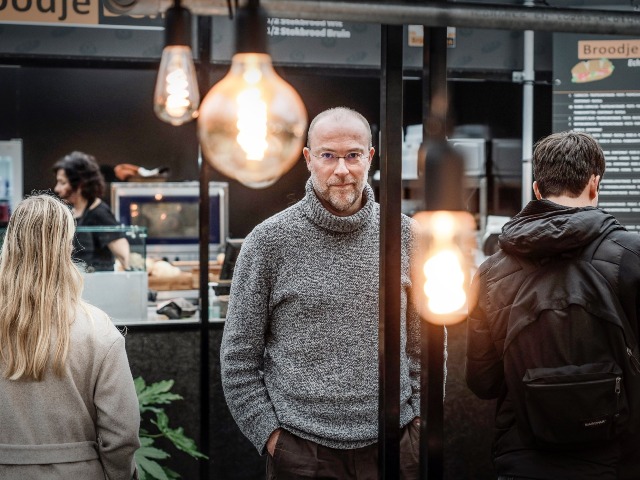Watch out for invisible influencing!
Date:08 February 2023
Whether you talk to someone in the street, read the newspaper, or scroll through Instagram, you are constantly being influenced. These influences affect our opinions and behaviour even when we are blissfully unaware. So why are we so easily influenced? And...
A-listed companies make progress in climate reporting, but improvements are needed
Date:04 February 2023
Recently, professor Nancy Kamp-Roelands, along with co-researcher Marcus Looijenga (Partner ESG at PwC and former lecturer at the University of Groningen), presented the results of their research into 75 Dutch, listed companies regarding climate related information in their annual report. As it turns out, significant progress has been made, however improvements are needed to meet the European regulations.
‘Only lowering the emissions cap will force an energy transition’
Date:10 January 2023
If you trade in your petrol-fuelled car for an electric one and put solar panels on your roof, you will be helping to limit CO2 emissions. Won’t you? Yes and no. ‘An electric car does help, but solar panels don’t’, says Professor of Energy Economics Machiel Mulder. To clarify how this works, he wrote the book Energietransitie: Eerst snappen, dan doen [‘Energy Transition: First understand, then act’].
Long-run effects of unemployment training programmes: 5% higher earnings
Date:15 December 2022
Recently, professor Gerard van den Berg and professor Johan Vikström (IFAU Institute and University of Uppsala, Sweden), published an article in Econometrica. The journal belongs to the top 5 of economics journals worldwide and publishes on a range of economic and econometric subjects.
External collaboration in complex situations: effective when combined with strong internal integration
Date:14 December 2022
Teams perform better when they collaborate and actively share information with other external teams outside their own organization. External collaboration enables teams to share best-practices and get access to original (external) ideas that can lead to creative solutions and innovation. This is primarily important when teams work on complex projects or deal with complex situations. At the same time, it is very difficult to organize external collaboration well when the teams involved deal with complex work situations. During such complex situations, team members are generally very busy, which puts the external collaboration under pressure. This could lead to teams not paying enough attention to external collaboration or not having time for it altogether, regardless of how important it might be. An important question is thus how teams can effectively organize external collaboration in complex (work) situations. Mitchell van den Adel, Thom de Vries, and Dirk Pieter van Donk examined this issue. In this blog article, they will give a summary of the most important findings.
Tracking Chinese aid reveals shifts in aid exports before and after the COVID-19 outbreak
Date:06 December 2022
In the past decades, China has become one of the world’s leading donors of foreign aid. However, an official dataset on China’s foreign aid did not yet exist. In one of their projects, Assistant Professor Feicheng Wang and co-authors from the University of Göttingen introduce a systematic way to measure China’s foreign aid in almost real time through official customs records and assemble a Chinese Aid Exports Database, which the researchers make available for public use. Relying on it, the authors depict a comprehensive picture of China’s aid exports and find remarkable shifts in aid allocation before and after the outbreak of the COVID-19 pandemic.
The effect of moral appeals on influenza vaccination upate among health care workers
Date:01 December 2022
Influenza vaccination uptake among health care workers (HCWs) protects patients and staff. Still, many health institutions’ coverage rates are unsatisfactory. Associate professor Laetitia Mulder and doctor Mariëtte Lokate (University Medical Center Groningen) aimed to test the effect of communicating moral appeals in increasing vaccination uptake in a real life setting.
From preferences to policy: turnout, accountability and policy responsiveness in Dutch local government
Date:29 November 2022
According to Harm Rienks, who will defend his PhD at FEB next week, we need to improve our democratic institutions to make them more effective in solving our modern societal challenges. He strongly believes that any change in our democracy should be preceded by good research, since this mitigates some of the risks that are associated with tinkering with democracy. That is why Rienks dedicated his PhD to investigating how democracy functions and testing this using data about Dutch local democracy.
The Dutch government’s energy price cap could put upward pressure on prices
Date:18 November 2022
Starting in January, consumers in the Netherlands will pay a fixed low price for the energy they consume below a generous threshold. For consumption above that level, they pay market prices. This price cap system is likely to raise energy prices even further, FEB professor Marco Haan and other competition experts from the University of Amsterdam (UvA) and SEO (an institute for economic research) predict.
Ahmed Skali: QAnon is destructive in the realms of health and politics
Date:08 November 2022
With his research Assistant Professor Ahmed Skali aims to discover what triggers the rise of destructive social movements (and linked conspiracy theories) that threaten our social and political institutions and what motivates people to participate in these movements. Together with co-authors Ho Fai Chan (Queensland University of Technology), Stephanie Rizio (FEB) and Benno Torgler (Queensland University of Technology), he investigates whether social distancing restrictions are met with conspiratorial backlash, and if so, why, and whether there are public health consequences.










